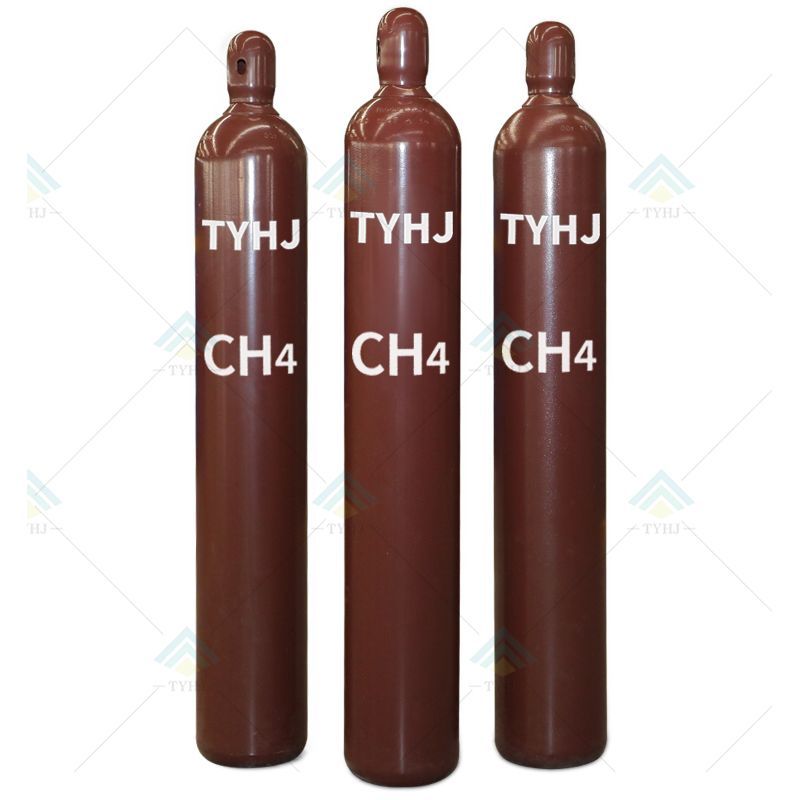In the realm of specialty gases, Methane takes center stage as a versatile and invaluable component with a plethora of applications across various industries. This article aims to explore the unique properties, applications, and advantages of Methane Specialty Gas, shedding light on why it has become a crucial player in the world of gases.

Methane, a hydrocarbon with a molecular formula CH4, is the primary component of natural gas. It is colorless, odorless, and highly combustible, making it a valuable resource in both industrial and commercial settings. Let's delve into the applications that make Methane a standout in the realm of specialty gases.
Methane is a key player in the energy sector, particularly in electricity generation. It serves as a clean-burning fuel, producing less carbon dioxide than other fossil fuels when combusted. The efficiency of methane in power plants contributes to its growing use as a cleaner alternative, aligning with the global shift towards sustainable energy sources.
The versatility of Methane extends to its role as a chemical feedstock. It is a precursor for the production of various chemicals, including methanol and acetic acid. Industries such as petrochemicals rely on Methane as a foundational element in the synthesis of essential compounds, showcasing its significance in chemical manufacturing.
In residential and commercial settings, Methane plays a pivotal role in heating and cooking applications. Its efficient combustion and affordability make it a preferred choice for powering furnaces, water heaters, and stoves. The consistent and reliable energy output of Methane contributes to its widespread use in everyday life.
As the world seeks greener alternatives for transportation, Methane emerges as a viable option. Compressed Natural Gas (CNG), predominantly composed of Methane, is gaining popularity as a cleaner alternative to traditional gasoline and diesel. The lower carbon emissions and cost-effectiveness make Methane a compelling choice in the quest for sustainable transportation solutions.
Certain industrial processes require gases with specific properties, and Methane fits the bill for numerous specialized applications. From metal production to pharmaceutical manufacturing, Methane finds use in processes that demand controlled environments and precise conditions, showcasing its adaptability in diverse industrial settings.
Methane's combustion produces fewer pollutants compared to other fossil fuels, contributing to improved air quality. Additionally, its role in energy production as a cleaner alternative aids in mitigating the environmental impact associated with traditional energy sources, making it a crucial player in the transition towards a more sustainable future.
While Methane is generally safe for use, its odorless nature poses a potential safety risk in case of leaks. To address this, an odorant called mercaptan is often added to give Methane a distinctive smell, allowing for easy detection in case of leaks and ensuring prompt preventive measures.
Efficient storage and transportation are paramount in the gas industry. Methane is often transported in liquefied form (LNG) or as compressed natural gas (CNG). These methods enable the safe and practical distribution of Methane to various end-users, ensuring its accessibility across different industries.
Methane's properties continue to intrigue researchers and scientists, leading to ongoing studies on its potential applications and innovations. From advancing combustion technologies to exploring novel uses in emerging industries, Methane remains a subject of exploration and innovation in the scientific community.
The widespread use of Methane has a significant impact on the global economy. Its role in diverse industries contributes to job creation, economic growth, and energy security. As the demand for cleaner energy sources rises, Methane is poised to play a crucial role in shaping the economic landscape.
In conclusion, Methane Gas transcends its simple molecular structure, proving to be a cornerstone in various industries. From energy production and chemical synthesis to everyday applications like heating and cooking, Methane's versatility and environmental benefits underscore its importance in the evolving landscape of specialty gases. As industries continue to prioritize sustainability, Methane stands as a beacon of cleaner energy and innovation, shaping a more environmentally conscious future.
Copyright:@2020-2021
Comments Please sign in or sign up to post.
0
0 of 500 characters used